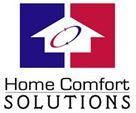✦ RESIDENTIAL SERVICES ✦
Heating Repair Services in Sugar Hill, Georgia
Temperatures during Georgia winters can vary from day to day. That’s why it’s important to stay up to date with weather conditions and freeze warnings in the area to avoid putting old furnaces and pipes under extreme pressure as they work overtime to keep you and your family warm.
You certainly don’t want water freezes because the pipes in homes can burst, causing serious damage that will damage a heating system.
Heating Repair in Sugar Hill, Georgia
According to the Department of Energy, homes here in the South are especially vulnerable to the threat of frozen pipes bursting because of the way they are built and also because homeowners are typically not as aware of freezing problems since temperatures usually only get that cold once or twice a year.
The general temperature alert threshold for freezing pipes is around 20˚ F or below – however, homes with old pipes may be at risk sooner.
Some practical steps you can take to reduce the risk of freezing pipes include:
- Sealing cracks and holes in walls near water pipes with caulking
- Wrapping pipes with insulation sleeves
- Open cabinet doors to let warm air circulate around pipes
- Let faucets drip slightly (moving water is less likely to freeze)
- If you suspect a frozen pipe, call a professional plumber immediately. Don’t take any chances.
As far as heating systems go, ultimately there will be failures when old furnaces are running so hard. You can take preventative action by getting your heater serviced annually, but in case your furnace fails, it is vital that you call Home Comfort Solutions as soon as possible to fix your system quickly.
How to Save Money on Heating
Heating your home uses more energy and costs more money than any other system in your home. It typically is 42% of your utility bill. That’s a big chunk of change so we want to make sure you save as much as you can.
No matter what kind of heating system you have in your house, you can save money and increase your comfort by properly maintaining and upgrading your equipment. Keep in mind that an energy-efficient furnace alone will not have as much of an impact on your energy bills as using the whole-house approach. By combining proper equipment maintenance and upgrades with recommended insulation, air sealing, and thermostat settings, you can save about 30% on your energy bill while reducing environmental emissions.
Most U.S. homes are heated with either furnaces or boilers. Furnaces heat air and distribute the heated air through the house using ducts. Boilers heat water, and provide either hot water or steam for heating. Steam is distributed via pipes to steam radiators, and hot water can be distributed via baseboard radiators or radiant floor systems, or can heat air via a coil. Steam boilers operate at a higher temperature than hot water boilers, and are inherently less efficient, but high-efficiency versions of all types of furnaces and boilers are currently available.
Retrofitting furnace
Furnaces and boilers can be retrofitted to increase their efficiency. These upgrades improve the safety and efficiency of older systems. The costs of retrofits should be carefully weighed against the cost of a new boiler or furnace, especially if replacement is likely within a few years or if you wish to switch to a different system for other reasons, such as adding air conditioning. If you choose to replace your heating system, you’ll have the opportunity to install equipment that incorporates the most energy-efficient heating technologies available. We can help you view the best options for your home.
Replacing furnaces
In comparison to older furnaces which can perform up to 70% efficiency, modern conventional heating systems can achieve efficiencies as high as 98.5%, converting most of the fuel to useful heat for your home. This upgrade can also cut your fuel bills and your furnace’s pollution output in half.
If your furnace is worn out, inefficient, or significantly oversized, the simplest solution is to replace it with a modern high-efficiency model. Old coal burners that were switched over to oil or gas are prime candidates for replacement, as well as gas furnaces with pilot lights rather than electronic ignitions. Newer systems may be more efficient and can often be modified to lower their operating capacity.
Before buying a new furnace or modifying your existing unit, first make every effort to improve the energy efficiency of your home by having one of our heating professionals inspect your furnace.
Maintaining Furnaces
The following maintenance should be provided by a heating system professional.
Check the condition of your vent connection pipe and chimney. Parts of the venting system may have deteriorated over time. Chimney problems can be expensive to repair, and may help justify installing new heating equipment that won’t use the existing chimney.
Check the physical integrity of the heat exchanger. Leaky boiler heat exchangers leak water and are easy to spot. Furnace heat exchangers mix combustion gases with house air when they leak—an important safety reason to have them inspected.
Adjust the controls on the boiler or furnace to provide optimum water and air temperature settings for both efficiency and comfort.
If you’re considering replacing or retrofitting your existing heating system, have the technician perform a combustion-efficiency test.
MORE HEATING TIPS
- Set your programmable thermostat as low as is comfortable in the winter and lower the setpoint when you’re sleeping or away from home.
- Clean or replace filters on furnaces once a month or as recommended.
- Clean warm-air registers, baseboard heaters, and radiators as needed; make sure they’re not blocked by furniture, carpeting, or drapes.
- Eliminate trapped air from hot-water radiators once or twice a season; if unsure about how to perform this task, contact a professional.
- Place heat-resistant radiator reflectors between exterior walls and the radiators.
- Turn off kitchen, bath, and other exhaust fans within 20 minutes after you are done cooking or bathing; when replacing exhaust fans, consider installing high-efficiency, low-noise models.
- During winter, keep the draperies and shades on your south-facing windows open during the day to allow the sunlight to enter your home and closed at night to reduce the chill you may feel from cold windows.



